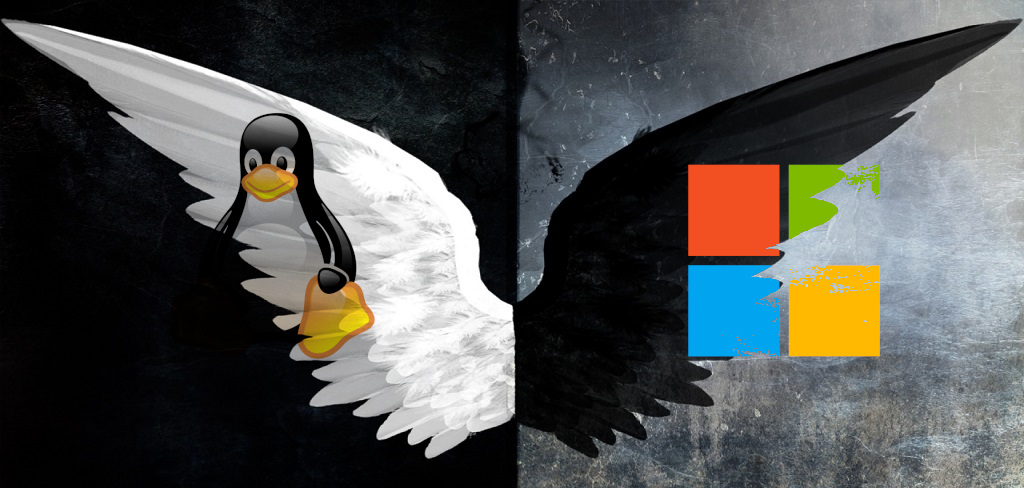Tech communism and the free world

Microsoft: The Soviet Union of Software vs. Linux: The Free World of Democracy
If we were to compare Microsoft to a form of government, it’s like a software Soviet Union, with closed borders, centralized power, and citizens (users) who must follow the rules or be left in the cold. Their software is closed source. The updates are forced upon you. You have no ownership rights besides paying the subscription. And their goal is market domination by brute force. Does this sound all too familiar?
Microsoft: The Closed Empire of Control
Picture the old Soviet Union: centralized power, secrecy, control of information, and a population forced to comply with the rules or be excluded from society. Now, look at Microsoft. What do they do? They close down their source code, lock it behind legal walls, and exert near-total control over how their software is used. Want to look at the source code? Forget about it. Want to modify it to suit your needs? Not allowed. The mighty Microsoft machine decides what you can do, what you can’t, and how much you’ll pay for it.
Microsoft: You Don’t Own Your Software
It used to be that you could buy your software and you would own it forever. But that is not the case anymore. Not only you can’t look inside the source code but you don’t own your software anymore. You must pay a subscription and the moment you stop paying they take the software away from you.
Microsoft: Authoritarian regime
This is software authoritarianism—a single entity calling all the shots, just like the Kremlin once did. You don’t own the software you buy; you’re renting access under their terms. And if you dare to peek behind the curtain or bend the rules, you’ll face their wrath—often in the form of crushing lawsuits, like the political dissidents who challenged the Soviet state.
Microsoft: A Privacy Nightmare
While Microsoft positions itself as a champion of productivity and innovation, there’s a dark undercurrent to its operations—its relentless tracking of users and the selling of user data.
Microsoft: Exploitation of Labor
Microsoft employees are often under intense pressure to crank out and ship software regardless of the quality. Profit is king, and they will sacrifice worker well-being to meet deadlines and maximize returns. They have no time to care about the quality of the software.
Linux: Democracy and the Free World
Now let’s take a stroll into the world of Linux. Here, we’re entering a realm of freedom, where anyone can contribute, share, and modify the code. If Microsoft is like the Soviet Union, Linux is more like the modern democracy we see in places like America and Europe, where freedom of speech, transparency, and individual empowerment rule the day.
Linux: Sharing Is Caring
While Microsoft enforces its will from the top down, Linux operates like a participatory democracy. Decisions about the direction of the software aren’t made by a single entity with absolute power, but by a diverse and decentralized community of developers, users, and enthusiasts. Everyone has a voice, and those who contribute have a say in how the software evolves. This decentralized nature mirrors democratic systems where citizens influence the governance of their society.
Linux: Quality Over Quantity
Linux development isn’t driven by profit or shareholder demands; it’s powered by passion. Developers contribute because they believe in the cause of open-source software. Unlike the corporate pressure cooker that defines much of Microsoft’s development process, Linux thrives on voluntary contributions, collaboration, and the joy of creating something better for the world. This dedication results in a higher quality product, as it’s not rushed to meet arbitrary deadlines but developed with care and community oversight.
Linux: Don’t Be Evil
Linux and the open source world will not try to sell your data, track you or hide the source code from you. They will not sue you because of copyrights. Instead, the open source world encourages sharing. There’s no hidden agenda to harvest user data or sell personal information to advertisers. Linux users have complete control over their system and data. Just as a democracy protects the rights and freedoms of its citizens, Linux protects the rights of its users, valuing transparency and respect for individual privacy above profit.
Conclusion
Microsoft and Linux embody two very different ideologies: one of control and centralization, the other of freedom and collaboration. Microsoft’s closed, authoritarian approach mirrors a Soviet-style regime, while Linux represents the ideals of democracy, transparency, and user empowerment. Where Microsoft locks users into a system of dependency, Linux sets them free to create, innovate, and take ownership of their digital world.